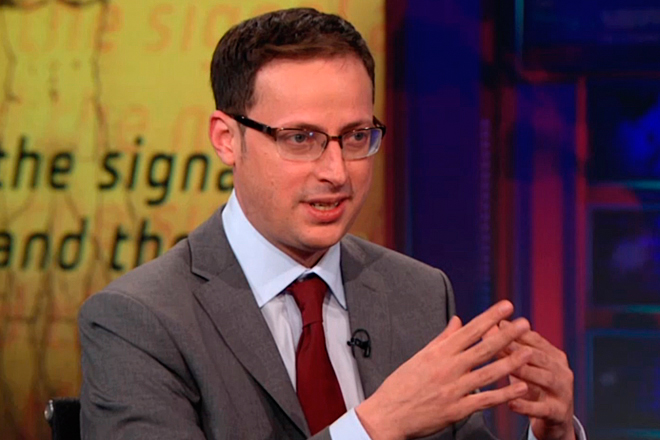Nate Silver has issued his first set of projections on the 2014 Senate races — and while his early “best guess” is that Democrats hold the upper chamber, Republicans could come close to capturing the majority.
Republicans need to take six seats to grab control, and they’ll have conditions in their favor, with 21 of the 35 seats in this cycle currently held by Democrats, including several in states which usually lean red. For now — and it is very early, with candidates still to be determined and possibly divisive primary battles ahead — Silver sees the GOP gaining 4.6 seats.
Silver emphasizes that this is a best guess and not based on a statistical formula. But he writes on his Five Thirty Eight blog that this takes into consideration the kind of factors which will be rolled into his forecast — a forecast which has been nearly flawless in the last two presidential campaigns.
In this projection, he ranks each seat as safe, likely or leaning to each party, or calls it toss-up. Silver has only moved one seat — retiring West Virginia Sen. Jay Rockefeller’s — from blue to red, calling it a likely Republican pickup.
But all four toss-ups — Louisiana, Montana, North Carolina and South Dakota — are currently held by Democrats; no Republican seats are seen as particularly vulnerable.
Three other seats — Iowa, Alaska and Arkansas, all held by Democrats now — fall into the lean Democratic category, but some could just as easily be toss-ups, Silver writes.
Iowa becomes a toss-up “if Republicans settle on a mainstream candidate like Representative Tom Latham, but the possibility of (Tea Party favorite Steve) King being chosen (one poll already projects him ahead in the Republican primary) leaves Democrats as the modest favorite for now.”
Meanwhile, no Republican seats even fall into the “lean Republican” category, a sign that the GOP will have a much easier time defending its seats next year than Democrats.
But all of this early, as Silver admits: “Midterm years usually favor the party that does not hold the presidency — Republicans, in this case — but generally not to the degree that they favored Republicans in 2010. And if Democrats face some challenges from having become increasingly reliant on voters who do not always turn out in midterm years, Republicans face some branding problems, with party favorability ratings near all-time lows in some polls.”


